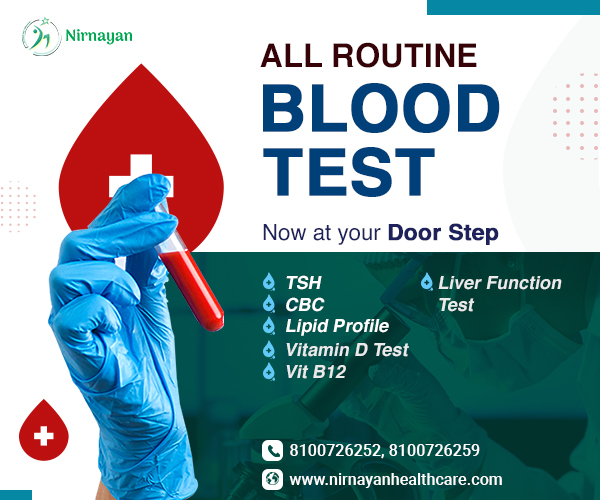In the contemporary fabric of our society, diabetes has emerged as a pervasive health concern affecting a substantial portion of the population. This blog delves into the intricacies of diabetes, aiming to demystify its various forms, explore the nuances of symptoms, and provide scientific insights into diagnostic methods and treatment strategies. With a focus on real-life experiences, we aim to shed light on the chronic nature of diabetes and the importance of proactive management.
What is Diabetes?
Diabetes mellitus, a group of diseases impacting blood sugar utilization, stands as a significant health challenge in our society. Understanding the root causes and symptoms of diabetes is crucial, considering its chronic and lasting impact on individuals. This blog seeks to unravel diabetes’s complexities, offering a scientific lens into its multifaceted nature.
Types of Diabetes:
Diabetes manifests in different forms, with Type 1 and Type 2 diabetes being chronic, prevalent conditions. Additionally, Pre-diabetes and Gestational diabetes present unique challenges, especially in certain demographics. This section aims to elucidate the distinctions between these types, emphasizing the need for tailored approaches to diagnosis and treatment.
Type 1 Diabetes:
Beginning in childhood but potentially developing later, Type 1 diabetes involves the destruction of insulin-producing cells in the pancreas. Timely diagnosis is critical, as this autoimmune reaction necessitates a lifelong insulin regimen. A scientific exploration of diagnostic tests and the significance of prompt treatment form the crux of this section.
Type 2 Diabetes:
Characterized by elevated blood glucose levels, Type 2 diabetes demands a comprehensive approach to management. Diagnostic tests such as A1C, Fasting Plasma Glucose, and Random Plasma Glucose provide insights into the condition. Lifestyle modifications and a healthy diet play pivotal roles in managing Type 2 diabetes, highlighting the scientific basis for holistic interventions.
Symptoms of Diabetes:
Understanding the symptoms of diabetes is paramount for early detection and management. This section delineates common symptoms for both Type 1 and Type 2 diabetes, offering a scientific perspective on the physiological indicators that warrant attention. Additionally, the often subtle symptoms of Pre-diabetes and Gestational diabetes are explored, emphasizing the importance of heightened awareness.
Causes of Diabetes:
Poor Diet: Diets high in processed foods, sugary drinks, and unhealthy fats can lead to obesity and insulin resistance
Hormonal Imbalances: Conditions like polycystic ovary syndrome (PCOS) and other hormonal disorders can increase the risk of diabetes.
Physical Inactivity: Lack of exercise contributes to weight gain and insulin resistance, both of which increase the risk of diabetes.
Obesity: Excess body fat, especially around the abdomen, can cause insulin resistance, a key factor in Type 2 diabetes
High Blood Pressure: Hypertension can contribute to the development of diabetes by affecting the body’s ability to use insulin.
Stress: Chronic stress can lead to hormonal changes that affect blood sugar levels, increasing the risk of developing diabetes.
How to Reduce the Risks of Diabetes:
Proactive measures to mitigate diabetes risks involve maintaining a healthy diet, prioritizing adequate sleep, achieving and maintaining a healthy weight, regular exercise, limited alcohol consumption, and adhering to prescribed medications. Scientifically, these lifestyle interventions are explored to determine their impact on reducing the risk of diabetes.
Complications you may face:
The causes of diabetes are associated with both chronic and acute complications, ranging from eye problems to vascular damage. A scientific elucidation of these complications underscores the importance of consistent management and the need for preventive measures. This section serves as a guide for understanding the potential ramifications of uncontrolled diabetes.
Treatment for Diabetes:
Scientifically sound treatment strategies for diabetes span lifestyle modifications, medication, and insulin therapy. Diagnostic tests, including Fasting Plasma Glucose, HbA1c, and Oral Glucose Tolerance tests, play pivotal roles in assessing blood sugar levels and formulating tailored treatment plans. This section provides an evidence-based overview of diabetes management.
Tests and Diagnosis:
Accurate diagnosis is a cornerstone of effective diabetes management. Scientifically validated tests, including the Hemoglobin A1C test, Fasting Blood Sugar test, Random Blood Sugar test, and Oral Glucose Tolerance Test, are explored in detail. The blog emphasizes the role of precise diagnostics in formulating targeted treatment plans.
Nirnayan, the leading pathology lab in Kolkata, has the facilities for all blood tests related to diabetes.
Conclusion:
In conclusion, this blog provides a comprehensive, scientifically informed exploration of diabetes, addressing types, symptoms, treatment strategies, risk reduction, complications, and diagnostic methods. By marrying real-life experiences with evidence-based insights, the aim is to empower individuals, healthcare professionals, and communities to navigate the complex landscape of diabetes with knowledge and resilience.




